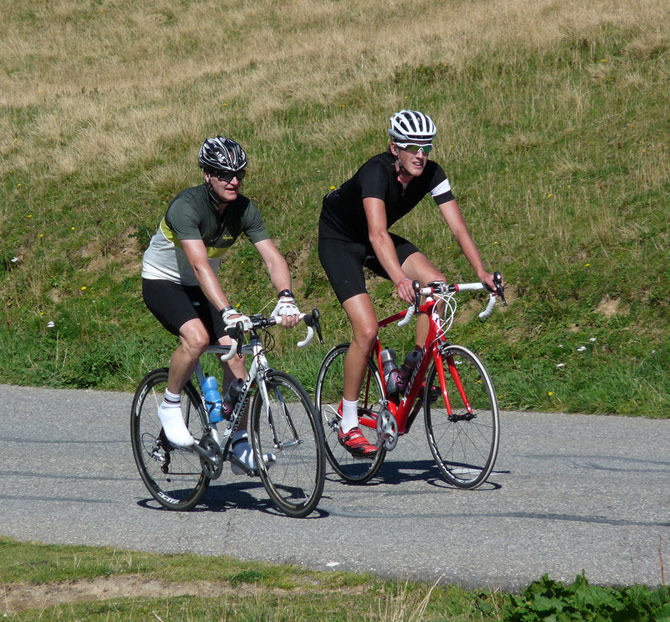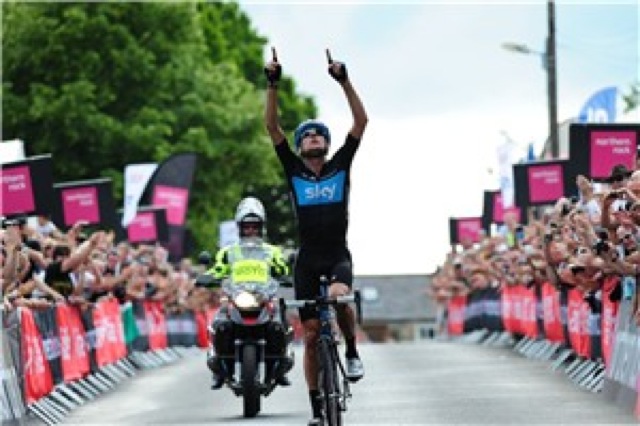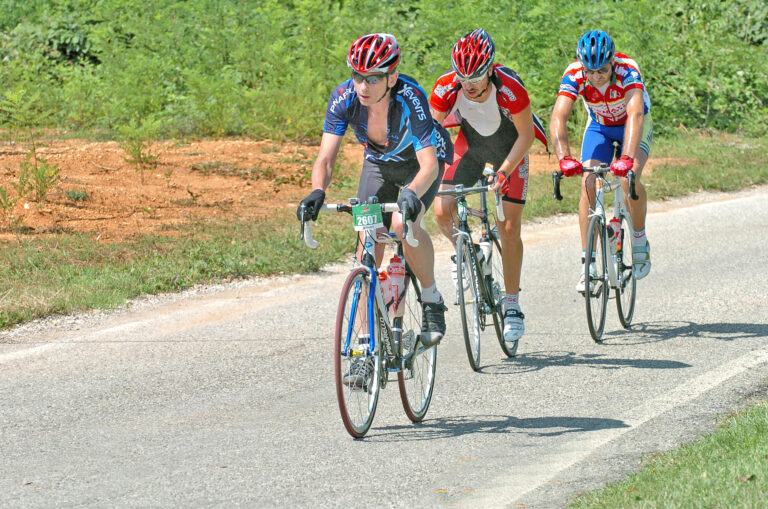
- Pic: La Fuga Travel
Welcome to RCUK’s new series. Over the next few weeks we’re going to be concentrating on the difference between riding your bike and riding your bike with a purpose – the difference between riding, and training for results.
Doubtless a lot of potential readers will look at the title of this feature and think “I’m not racing, this isn’t for me” but stay with us a moment, because I would argue that ‘training for results’ is for everyone, from leisure riders to high end pro’s alike.
Let me qualify that by taking the term ‘training for results’ at face value. Training is the cumulative acquisition of knowledge, techniques and skills that increase proficiency in achieving pre-determined standards. In achieving those standards we have gained results. So anything we do on a bicycle or in any other aspect of our lives that improves our ability to ride ‘better’, for want of a better term, can be seen as training.
And results don’t stop with points, licence categories, medals or stripey jerseys. Discovering how to improve climbing ability, for example, is one of many cyclists’ great desires. And while going out and simply riding up hills would no doubt improve your ability slightly in this area over time, identifying what techniques, skills and components of fitness are required to climb hills faster, then going out and practicing these elements repeatedly until you see improvements – that’s training for results. And that’s going to make you a better climber, quicker. So hopefully you see the difference between riding up hills and ‘training for results.’
Primary goal
I work with a rider whose primary goal is weight management. Everything I do in relation to his training is focussed on balancing a lifestyle not conducive to this goal with training in order to achieve it. He’s training for results, the results being weight loss. Are his goals any less important than a 1st category racer I’m also working with who’s aiming for the top step of the podium in her regional road race championships? They’re certainly quite different, but at the end of the day they’re both just training for results.
So, riding smartly, with a pre-determined idea of what your goals are and a measured path of how to achieve them is training for results, and over the next few weeks I’m going to outline a few basic principles that, when integrated into your training, can have only one possible outcome. You’ll become a better rider, quicker – whatever your goals.
Magic formula?
Sounds great, eh? And I bet you’re glad you kept reading now, aren’t you? Unfortunately there is no magic formula that means you’re going to be able to avoid many hours of dedicated practice and become twice as quick in half the time. What there is, is a set of scientific principles that, if followed correctly, can’t fail to make you improve. From the guy who wants to beat Mark Cavendish over the line in the London 2012 road race to the weekend warrior who wants to knock 15 minutes off his favorite sportive time, to the rider who just wants to feel more in control when riding the local descents, as cyclists we all want to improve, right?
So in the coming weeks we’ll be looking at the things that make us better riders. These are;
1) Components of fitness – the physical attributes that you need as part of your make-up to make you a good rider. All sports have their individual components of fitness and clearly those required by a discus thrower are completely different to those required if you’re a road racer. So we’ll look at what they are in relation to the various cycling disciplines, how you can identify them and how you can improve them.
2) Components of performance – Having all the physical attributes is one thing but will count for nothing unless you have a well developed sense of how and when to best use them – these are the components of performance. Use psychological and technical competency as well as general good practice in your rides.
3) Principles of conditioning – the things that you put into your daily, weekly, monthly and annual training that combine to actually make you a better rider. If you like the scientific ‘rules’ that mean your training works or doesn’t. Like most of us you’ve probably wondered why at certain times you’re ‘flying’ on the bike and other times you’re ‘dead’ for no apparent reason. Well, there is always a reason, and knowledge of the principles of conditioning and how to apply them to your training will help you have many more of the former and a lot less of the latter.
So in the coming weeks we’ll be looking at these key areas and giving you some great individual and group training sessions to improve your riding – whatever your level.
About the author:
Huw Williams is a British Cycling Level 3 road and time trial coach. He has raced on and off road all over the world and completed all the major European sportives. He has written training and fitness articles for a wide number of UK and international cycling publications and websites and as head of La Fuga Performance, coaches a number of riders from enthusiastic novices to national standard racers.
Contact: [email protected]






